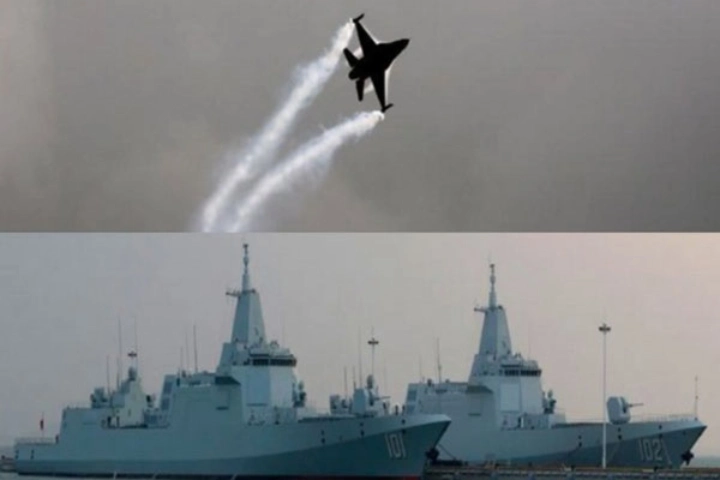

Representative Image
Taiwan’s Ministry of National Defence (MND) said that 23 Chinese military aircraft and five naval vessels operating around Taiwan from 6 am (local time) on Friday to 6 am (local time) on Saturday.
Of these, 20 Chinese military aircraft entered Taiwan’s northern, central, southwest and eastern Air Defence Identification Zone (ADIZ), according to Taiwan’s MND. In response to China’s action, Taiwan’s armed forces have monitored the situation and responded accordingly.
In a post on X, Taiwan’s MND stated, “23 #PLA aircraft and 5 PLAN vessels operating around #Taiwan were detected up until 6 a.m. (UTC+8) today. 20 of the aircraft entered Taiwan’s northern, central, SW, and eastern ADIZ. #ROCArmedForces have monitored the situation and responded accordingly.”
Since September 2020, China has intensified its use of grey zone tactics by increasing the number of military aircraft and naval ships operating near Taiwan.
According to a Taiwan News report, Grey zone tactics are “an effort or series of efforts beyond steady-state deterrence and assurance that attempts to achieve one’s security objectives without resort to direct and sizable use of force.”
This latest incident adds to a series of similar provocations by China in recent months. China has increased its military activities around Taiwan, including regular air and naval incursions into Taiwan’s Air Defense Identification Zone (ADIZ).
Taiwan has long been a contentious issue in China’s foreign policy. China continues to assert its sovereignty over Taiwan and considers it a part of its territory and insists on eventual reunification, by force if necessary.
Meanwhile, Taiwan has advised its citizens against traveling to China, Hong Kong, and Macao following Beijing’s threats to execute supporters of Taiwan’s independence.
Liang Wen-chieh, spokesperson for Taiwan’s Mainland Affairs Council, issued this warning in response to increased tensions with China, which views Taiwan as part of its territory and has refused to engage with Taiwan’s government since President Tsai Ing-wen’s election in 2016.
The advisory aims to caution Taiwanese travellers about potential risks under China’s new guidelines targeting supporters of Taiwan’s independence. While travel is not prohibited, citizens are advised against expressing political views or engaging in activities that could lead to detention or prosecution by Chinese authorities.
Earlier, Taiwan had criticised Beijing’s threat of harsh punishments, including the death penalty, for those supporting Taiwan’s independence. A notice issued by Beijing specified the death penalty for leaders of independence efforts who cause serious harm to the state and the people while other leading advocates could face jail terms ranging from 10 years to life imprisonment.
Taipei condemned the new Chinese guidelines, asserting that Beijing lacks legal jurisdiction over Taiwan and dismissing the regulations as non-binding on Taiwanese citizens.
In a press release, the Mainland Affairs Council (MAC) criticised the guidelines announced by Chinese officials earlier as “regrettable,” terming them as provocative and detrimental to interactions between the people of Taiwan and mainland China.
China’s increased pressure on supporters of Taiwan’s independence stems from its longstanding claim that Taiwan is part of its territory, despite the island’s self-governance since 1949.
New Zealand's Deputy Prime Minister and Foreign Minister Winston Peters has arrived Kathmandu on his…
The Indian Army and the Mongolian Armed Forces will commence the 17th edition of their…
Pandi Ram Mandavi, a renowned artist from Bastar, Chhattisgarh, was conferred the Padma Shri award…
Taiwan's Mainland Affairs Council (MAC) criticised China on Wednesday for organising two summits for Taiwanese…
The East Turkistan Government in Exile (ETGE) vehemently denounces Mr. Francesco Frangialli, the Honorary Secretary-General…
Chairman John Moolenaar and Ranking Member Raja Krishnamoorthi of the House Select Committee on the…